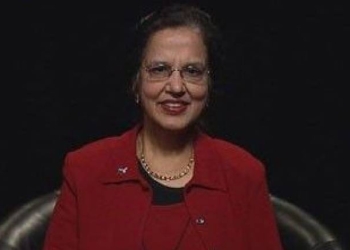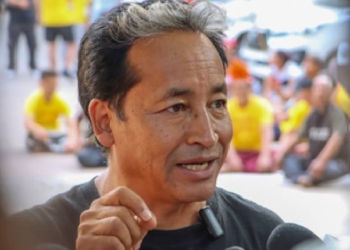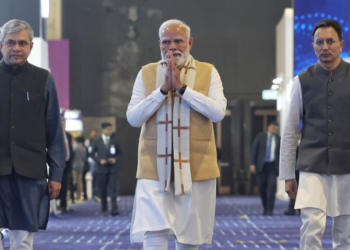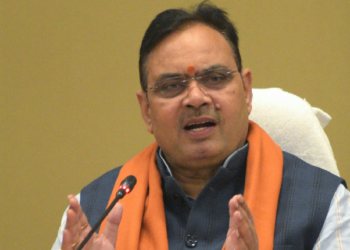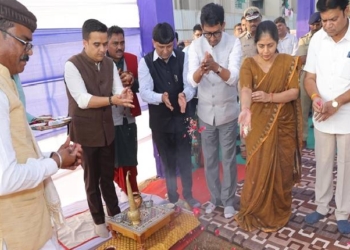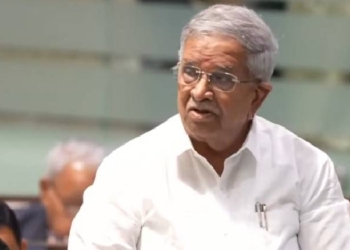Hyderabad: There is revolution in cancer care like many advances in technology, updated guidelines, and integrated work leading to better results. But this is confined to metropolitan cities and at the district and village level cancer care needs to be streamlined, say oncologists on the eve of World Cancer Day.
Every year, cancer day is observed to bring awareness to the public about cancer, its risks, early diagnosis facilities and educating people about the various types of cancer.
The theme for this year is “Closing the Care Gap” which focuses on reducing the cancer burden and improving the care facilities. Cancer is the deadly disease where any tissues or body parts can be affected and cells grow uncontrollably and abnormally and spread to other parts of the body.
It is the second leading cause of deaths in the world and has the ability to destroy normal tissues.
Although it is possible to live long with cancer, it is important to be diagnosed first and determine the suitable treatment patterns that can help reduce the growth of cancer cells, say oncologists.
The year 2022 recorded 20 million new cancer cases and 10 million deaths.
Cancer can be prevented and controlled by implementing evidence-based strategies for cancer prevention.
Treatments for cancer have a high impact on the patient’s economic and social constraints.
The cancer burden can increase by 60 per cent in the next two decades if the healthcare system strains people and communities.
It is estimated that by 2040, there will be a 57 per cent increase in cancer and approximately 6.23 million new cases if no further action is taken.
Dr. Madhu Devarasetty, Sr. Consultant – Surgical Oncologist & Minimal Invasive Surgeon, KIMS Hospitals stressed the need for establishing more cancer care centers at the district level and recruiting more specialists.
“It’s very important to know that most cancers are curable if they are detected early in breast cancer, Thyroid cancer, colorectal cancer, etc. Awareness in society and standardization of treatment will enable us to close the care gap. Prevention plays a vital role in cancer care, that is modification of risk factors. One third of total cancers can be prevented and this will save thousands of lives,” he said.
The oncologist believes that access to correct and concise information and knowledge about cancer can empower communities to conquer the social stigma.
“Palliative care is essential for comfort in advanced cancers and it’s a crucial part of integrated cancer care services. Last but not least is psychological counseling which builds the mental strength of the patient to develop a positive attitude and helps the patient to take treatment completely,” Dr. B. Kishore Reddy, Chief Ortho Oncologist, Amor Hospitals says that it is important to have equal access to quality care.
“It is one of the goals for World Cancer Day where research and efforts are made to support the development of new treatments, increasing the accessibility of the treatments, and encouraging research on a global scale. This can involve teamwork from healthcare organisations, advocacy groups and individuals who work to overcome the challenges caused by cancer. It is a complex disease with various risks and challenges. To tackle this, healthcare organisations, policymakers, researchers and communities must work together. With a focus to serve the underserved communities, it requires breaking down barriers that are restricting people to have access to quality treatment.
“Early detection of cancer can save a patient’s life. In India, there are many hospitals that specialize in cancer screening and diagnosis. Most of the time, cancer is detected at the later stages and sometimes, it is identified at the early stages. The patients who identify cancer in the later stages have to take actionable steps to receive treatment, and have to attend regular hospital appointments. Maintaining a healthy weight, exercising regularly and eating healthy people can maintain a healthy lifestyle whilst overcoming cancer. Cancer cannot be completely cured, but with time and successful treatment, cancer can be gone into remission,” Dr. Kishore Reddy added.
Dr. C. Mallikarjuna, Chief Urologist and Managing Director, Asian Institute of Nephrology and Urology (AINU), who spoke about kidney cancers said: “Due to new treatments and innovative technology, the patient life span has increased and living until 80 has become common nowadays, 75 per cent of people who cross 70 are prone to prostate cancer, they would not come to hospital because their symptoms would not be identified. For people who cross 80, the bones will also get affected and the patients come to the hospital. This means it is easy to help patients who are diagnosed in the early stages and save their life.
“Prostate-Specific Antigen (PSA) is a blood test that everyone needs to get once every two years. This can track prostate cancer, improve the blood flow and the condition of the person. People who have problems with urination, urinary infection or have pain, need to take proper treatment to have results. Also, it immensely helps people who cross 65 years of age or senior citizens who have such symptoms. It is not correct to use antibiotics as soon as there is urinary infection. Right treatment plan is advised to help track prostate cancer every year.”
(IANS)





